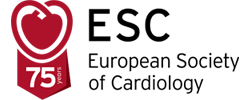Dear Members,
In this issue of the journal we have a high focus on knowledge about atrial fibrillation (AF) and anticoagulants (OACs); We still need to learn.
AF is the most common cardiac arrhythmia and its prevalence increases with advancing age.(1,2) Dr. Wilson and coworkers from Ireland have conducted a systematic review and meta-analysis to establish if there is evidence as to which drug, either flecainide or dronedarone, is more effective to maintain sinus rhythm following electrocardioversion for persistent AF. The authors concluded that dronedarone and flecainide displayed similar efficacy in maintaining SR in patients following electrocardioversion for persistent AF.
Patients with AF treated with OACs have an increased risk of bleeding including hematuria.(1,3–5) Since hematuria may be associated with urinary tract cancer, Dr Rasmussen et al. from Denmark, have investigated the potential association between gross hematuria and urinary tract cancer in anticoagulated patients with AF.
We also publish a study by Dr Elgandy and coworkers from the United States, examining the efficacy and safety of direct oral anticoagulants (DOACs) versus low molecular weight heparin (LMWH) in patients with cancer-related venous thromboembolism (VTE). They report that compared with LMWH, DOACs were associated with lower risk of VTE recurrence and similar risk of major bleeding (MB) compared with LMWH.
Oral anticoagulants, including vitamin K antagonists (VKAs) and DOACs, are usually given lifelong to prevent stroke in patients with nonvalvular atrial fibrillation (NVAF).(1) The prolonged use of VKAs is a concern, given their potential detrimental effect on bone metabolism.(6) Dr Renoux et al. from Canada, have used Quebec administrative healthcare databases, found that prolonged use of DOACs is associated with a lower risk of fracture compared with VKAs.
Left ventricular (LV) thrombus is a recognized complication of acute myocardial infarction and is associated with a significant thromboembolic risk when left untreated.(7) Dr. Rathod and coworkers from UK found that there was greater and earlier LV thrombus resolution in the NOAC group compared to patients treated with warfarin during the follow-up period.
Polypharmacy is prevalent among NVAF patients and is associated with negative clinical outcomes including potentially serious drug–drug interactions, adverse drug reactions, and related hospitalizations.(8–12) Dr. Lip and coworkers from UK compared the risk of stroke/systemic embolism (SE) and MB among NVAF patients with polypharmacy newly prescribed OACs. Compared to warfarin, apixaban and rivaroxaban were associated with a lower risk of stroke/SE after using propensity score analysis. Apixaban and dabigatran were associated with a decreased risk of MB compared with warfarin. Compared with dabigatran and rivaroxaban, apixaban was associated with a lower risk of stroke/SE and MB. The authors state that different effectiveness and safety profiles are evident for the different OACs in polypharmacy patients.(13)
In relation to our educational programme/courses the Pharmacotherapy in Older People course is held 14th-15th October 2021. The All About Clinical Trials course will be run in 16th-17th December 2021. We will launch a new educational programme early 2022 termed “Cardiovascular Pharmacotherapy in Women”.
EuroCVP 2021: A condensed 3-day programme with all of the updates on Cardiovascular Pharmacotherapy was held online (10th-12th June 2021) which gave the best from our longstanding "All About Clinical Trials" course, to improve skills in designing and planning successful clinical trials. Moreover, profound discussions and expert panels enriched the record-breaking "Pharmacotherapy in Older People" course, to deliver better, personalised therapy for older patients. In addition to the highly successful course program, the designated highlight sessions provided an overview on pharmacotherapy and COVID-19, current challenges in pharmacogenomics, or on how to manage post-operative anti-thrombotic therapy after cardiovascular surgery.
On behalf of the Working Group nucleus,
Alexander Niessner, Chairperson 2020-2022 and
Anne Grete Semb, Communication Coordinator 2020-2022
Back to other news from the ESC Working Group on Cardiovascular Pharmacotherapy

 Our mission: To reduce the burden of cardiovascular disease.
Our mission: To reduce the burden of cardiovascular disease.